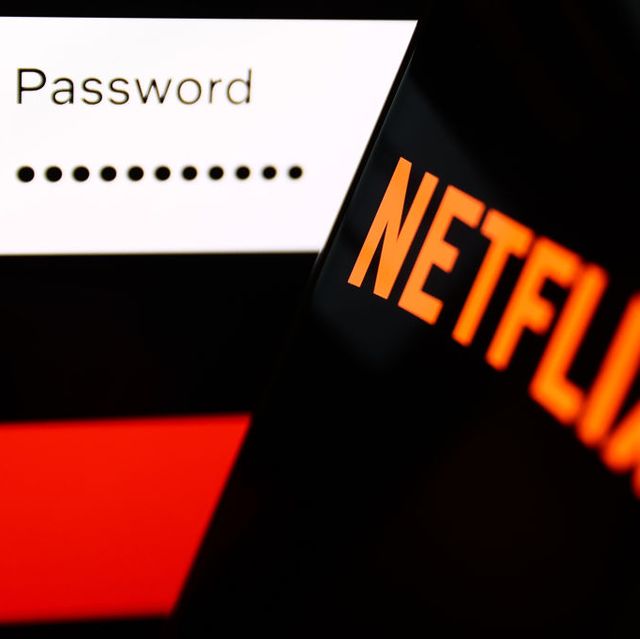We didn’t want to believe it, but in truth we knew this day would come. The long-promised Netflix password sharing crackdown is here.
“A Netflix account is for use by one household,” the streamer boomed in a statement sent out to UK users on Wednesday. It urged customers to “check who’s using your Netflix”, and suggested that users “review which devices are signed into your account,” then “sign out of accounts that shouldn’t have access and consider changing your password”.
It’s framed like this is a security thing rather than a ‘please stop using our thing for free’ thing, and all with the subtlety of a bouncer suggesting that your friend might want to take a bit of fresh air, actually, before he joins the queue, and it’s very busy in there tonight anyway, lads.
Anyone with a profile on your membership can transfer it to a new account, keeping their lists and data, or for £4.99 a month you can add another person to your account.
This, relatively speaking, is the carrot, even if the carrot looks a lot like a stick; the actual sticky-stick is that Netflix will start locking out devices that aren’t at a primary residence, a Netflix insider told Variety in February.
It’s the first concrete move from Netflix after years of alternating between politely ignoring password sharing (an actual crime, according to the UK's Intellectual Property Office) and coming over all ineffectual supply teacher about the whole thing. Every so often there’d be another edict about not sharing passwords, threatening some kind of reckoning which never got any closer. No really! I mean it! This time, absolutely zero tolerance! In several months’ time you’re really going to wish you’d listened because, so help me God, you will leave me no choice but to ask you again!!
Think of it less as shutting the stable door after the horse has bolted than as watching the horse amble out of the stable, staring at the stable for several years, seeing the horse expire after many happy afternoons trotting about the paddock at its leisure, then lecturing the horse’s corpse for having unsportingly contravened a gentleman’s agreement re: stable door access rights.
It’s all come to a head at a time of growing precarity for Netflix. As people have a lot less cash to throw about at streaming services, Netflix has found itself surplus to requirements. It’s haemorrhaging subscribers in the UK – about 500,000 left in 2022, and another 200,000 are forecast to go in 2023 – and the fact it’s cancelled three new shows after a single series this year already doesn’t make it feel like there’s a particularly clear-sighted creative logic there.
Netflix just isn’t as essential a part of TV culture anymore. Its original series are warmly received rather than lighting up group chats; its original films hover around two and three star reviews.
Netflix knows that there are more people out there who will look at its service and decide that they can do without it.
“This will not be a universally popular move,” co-CEO Greg Peters said in January, and anticipated “a bit of cancel reaction to that”.
Allowing people to get your stuff for free isn’t a particularly sensible business plan, that’s fairly obvious. But sharing passwords arguably made Netflix what it is. Almost everyone under the age of 35 got into Netflix during the first streaming boom of the early 2010s by piggybacking on someone else’s account. It was a new tech thing, of course, but Netflix’s influence and importance spread through the very old fashioned method of great word of mouth.
Even if they weren’t sure that £7.99 a month was a worthwhile investment in their own happiness, an enormous number of people still managed to be invested in what Netflix was producing and hosting. It was a communal thing, the post-internet equivalent of handing a hooky DVD around at school. For a while, Netflix acknowledged it. There was the Facebook-integrated watchalong feature, which got how people were engaging with TV afresh as linear broadcasting started to warp, and creating their own watercooler moments outside the stiff, boxy schedules.
It drew a whole generation of cheapskates toward the brand. Now those same people are weighing up whether or not to junk the subscription, in the hope that they can stop hyperventilating at the end of each month as the bank balance drains. I’m not saying they made Netflix, but they certainly helped provide a critical mass of enthusiasm for shows as the service found its feet and the world woke up to streaming.
I’d never have got through early, platform-making hits like Making a Murderer, Orange is the New Black and House of Cards without piggybacking on my flatmates’ log-ins. An ex-girlfriend left herself signed in on my laptop and after she dumped me, I soothed my soul by running through Breaking Bad.
Netflix doesn’t owe us anything. But it felt like we had a good thing going. Perhaps, if subscriptions continue to slide, it will come to realise that the illicit sharing of accounts wasn’t an existential threat but a badge of honour after all.













